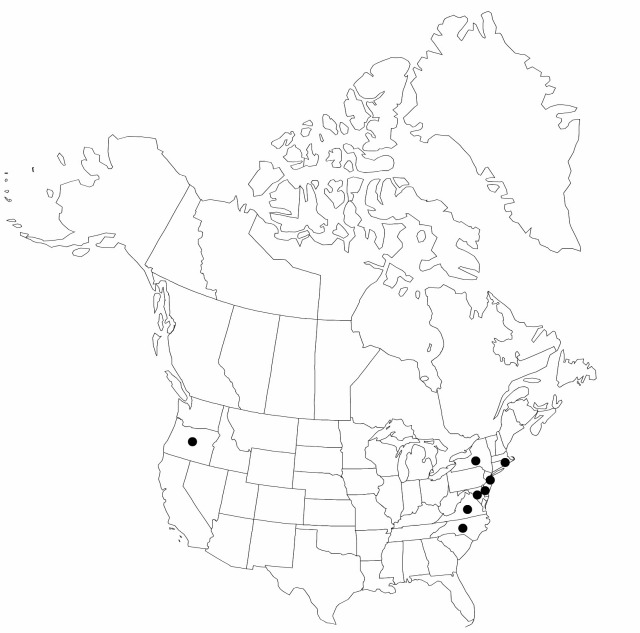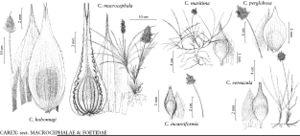Carex kobomugi
Mem. Coll. Sci. Kyoto Imp. Univ. Ser. B, Biol. 5(3): 21930.
Culms bluntly angled, smooth or slightly serrulate on 1 angle distally, 10–30 cm. Inflorescences with pistillate heads 2–4 cm wide; proximal spikes appressed to ascending. Pistillate scales green or gold with distal margins white or pale gold, 0.7–1 mm wide, apex long or short-tapered with awn to 6–12 mm. Anthers 4–6.5 mm. Perigynia appressed-ascending to ascending, with shallowly erose wing 0.4–0.6 mm wide, base acute; beak ± falcate, 3–5 mm from apex to achene, apex notched 0.4–0.6 mm adaxially. Achenes 4–7 × 1.5–2.5 mm.
Phenology: Fruiting spring–summer.
Habitat: Sandy beaches along seacoasts, sounds, bays, and inlets
Elevation: 0 m
Distribution

Introduced; Del., Md., N.J., N.Y., N.C., Oreg., R.I., Va., native e Asia
Discussion
Before Carex kobomugi was formally recognized it was included in C. macrocephala Willdenow ex Sprengel. Carex kobomugi was collected during the early 1900s from ballast and sand near Portland, Oregon, but recent collections are not known; the habitat there may no longer exist. Clones of C. kobomugi have been registered by the U.S. Soil Conservation Service and the New Jersey Agricultural Experiment Station for long-term stabilization of coastal sand dunes. Its introduced range will likely expand.
Selected References
None.
Lower Taxa
"shortened" is not a number.
